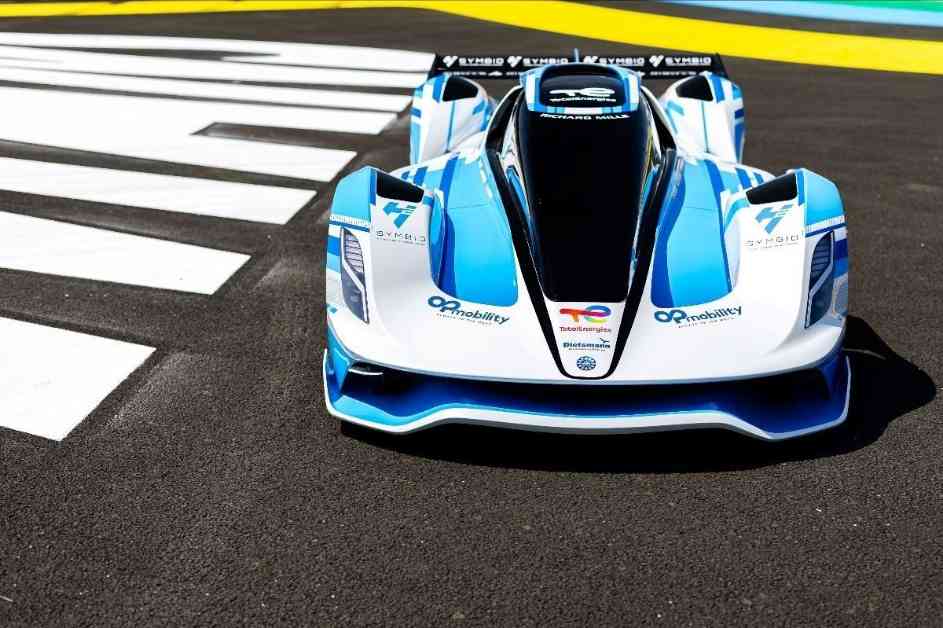MissionH24 recently unveiled the new H24EVO hydrogen fuel cell car at Le Mans, marking a significant advancement from its predecessors, the LMP2HG and H24. The power output of the H24EVO has increased to 650kW or 872bhp, up from 350kW (470bhp) in the previous generation, while the weight has been reduced to 1300kg from 1480kg. Additionally, the power density of the hydrogen-electric powertrain has also seen a 50% improvement.
The primary goal of the MissionH24 project is to promote hydrogen as a viable alternative fuel in motorsport and establish a framework for its use in sportscar racing. The Automobile Club de l’Ouest, the organizer of Le Mans, plans to allow hydrogen-powered vehicles using either fuel cell or combustion technology to compete starting in 2027, with the first cars expected to hit the grid in 2028.
The H24EVO is built on a new chassis designed from scratch by German constructor ADESS, featuring two fuel tanks that can hold 7.8kg of hydrogen. The car aims to become the first FIA-homologated racing car, with the hydrogen stored in gaseous form as per the FIA’s preferences.
The decision to create a single-seater vehicle was based on considerations of integration, packaging, and feedback from the ACO to give the car a distinct appearance. The H24EVO is set to undergo testing early next year, with a demonstration planned during the Le Mans event. While there were initial plans for the car to race in 2025, it is now more likely to hit the track in 2026.
The ultimate goal for the H24EVO is to achieve lap times comparable to the fastest GT3 cars, although specific racing locations have yet to be determined. There is also a possibility that the car could compete in the Garage 56 grid slot for experimental racers in the future, depending on its performance and safety standards.
In conclusion, the unveiling of the H24EVO at Le Mans represents a significant milestone in the MissionH24 project’s mission to promote hydrogen as a viable fuel option in motorsport. The advancements in power output, weight reduction, and power density demonstrate the commitment to innovation and sustainability in the world of racing. With plans for on-track testing and potential future racing opportunities, the H24EVO sets the stage for a new era of hydrogen-powered vehicles in sportscar racing.
